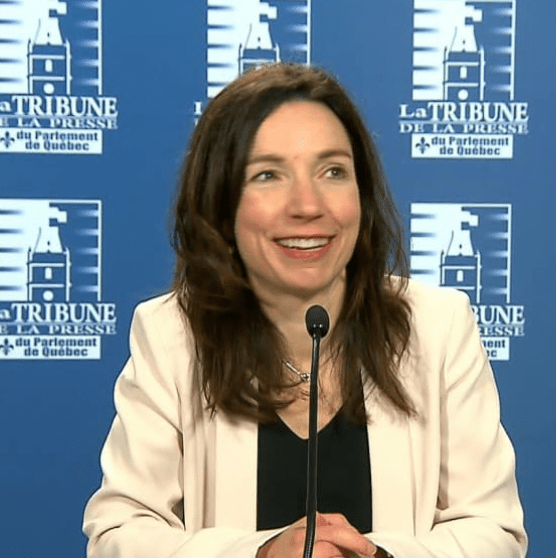The implosion of the Bloc Québécois is good news for the NDP, and indeed, for all of Canada.
In many ways, it is not surprising. Quebec-based federal political parties have come and gone in Canada's democratic history: the Ralliement Créditiste and the Bloc populaire being the two main examples. The Bloc has been quite resilient.
After the Meech debacle, the creation of the Bloc Québécois by defecting Progressive-Conservative and Liberal MPs transformed the federal political landscape, combined with the rise of the Reform Party. After the 1993 wave that brought Bouchard to Stornoway and the Bloc as Her Majesty's Loyal Opposition, the Bloc took its job seriously, becoming an effective, combative opposition party.
The Bloc was supposed to be a one-time wonder, part of the 3-period strategy of Jacques Parizeau: 1993 Federal Election, 1994 Provincial Election, 1995 referendum. When they lost in overtime, the Bloc could have floundered. Instead, they refocused. Lucien Bouchard left to become Premier, passing the torch briefly to Michel Gauthier, briefly, then Gilles Duceppe. Their main objective became the defense of Quebec's interests.
The Bloc's research and communication team was hard-working and dedicated. They produced in-depth, well-researched backgrounders, appreciated by all members of the Press Gallery and raising the bar for the other opposition parties. The BQ broke news regularly and was relentless when they had a Minister cornered.
The sovereignist party went beyond that label and excelled on day-to-day issues every citizen of this country cared about. Still, it slowly declined from its 1993 high. Until they uncovered the Sponsorship Scandal, which effectively gave the separatist party a second life the exact opposite of what the Sponsorship Program was supposed to do.
Not unlike a tired-government, though, people were slowly growing tired of the Bloc Québécois. The NDP was well-positioned to take advantage of that fatigue, even though it took longer than New Democrats strategists would have liked. Over the years, polling consistently showed that the second choice of most Bloc voters was the NDP. Voters were ripe for a change in 2011, when the New Democratic Party replaced the Bloc as the preferred federal party of Quebecers. After 18 years of domination, the Bloc was facing extinction, having saved only 4 seats Duceppe losing his own seat.
Since 2011, the Bloc has had four leaders: Daniel Paillé took over from Gilles Duceppe, but had to resign for health reasons. Hard-core separatist Mario Beaulieu took over, but was leading the BQ nowhere fast. He called on Gilles Duceppe to come back just before the 2015 campaign Duceppe couldn't resist a chance to avenge the 2011 defeat and spent the entire campaign attacking the NDP. If the strategy worked in hurting Mulcair's chances to become Prime Minister, it didn't help the Bloc. Duceppe lost his seat again and the party elected only 10 MPs, shy of official status.
PQ MNA Martine Ouellet was crowned leader in March 2017 and decided to lead her federal troops from the confines of her seat at the National Assembly. That was the first sign of trouble. As soon as she arrived, it was clear that her caucus was not seeing eye-to-eye with their new Leader. Clashes were frequently relayed by the media; in the summer MPs held a spectacular press conference, talking about a breach of trust with Ouellet and her team. Cosmetic changes were made, but to no avail.
Martine Ouellet's intransigence is stuff of legend in Quebec City, where she was a Minister for 18 months. Under her tenure at the Natural Resources department, all of her deputy ministers and assistant deputy ministers had to be replaced. Her own office had revolving doors, staffers being ejected on a regular basis.
Among her PQ colleagues, nobody is surprised about what is happening in the Bloc Québécois. The fact that she's hanging on as Leader despite 70% of her caucus resigning including party founder and Dean of the House of Commons Louis Plamondon shows the depth of the problem.
By staying in place, Ouellet is offering a lifeline to Jagmeet Singh's NDP. Despite having 16 Quebec MPs and being the main opposition to the Liberals in Quebec, the party has been struggling in the polls and hasn't done so well in recent by-elections.
As it was since the creation of the party, most Bloc voters still see the NDP as their second choice. The reverse is also true, but the trend is down for the Bloc and the bickering can only worsen it. Some Bloc voters could go to the Conservatives, but no point lost by the Bloc goes to Justin Trudeau's Liberal Party.
Smartly, the NDP refreshed its offers to Quebecers during their convention last month. It is now the only federalist party opening the door to fixing the historical mistake of repatriating the Constitution without Quebec in 1982. Party delegates also supported the introduction of a single tax return. The elements are in place for the NDP to convince Quebecers to come back.
Sunday, both Martine Ouellet and Jagmeet Singh are appearing on Tout le Monde en Parle, the popular talk show often credited with giving Jack Layton a personal connection to Quebecers. One is going on the defensive as her ship is sinking. The other is all steam ahead.
Photo Credit: Radio-Canada






